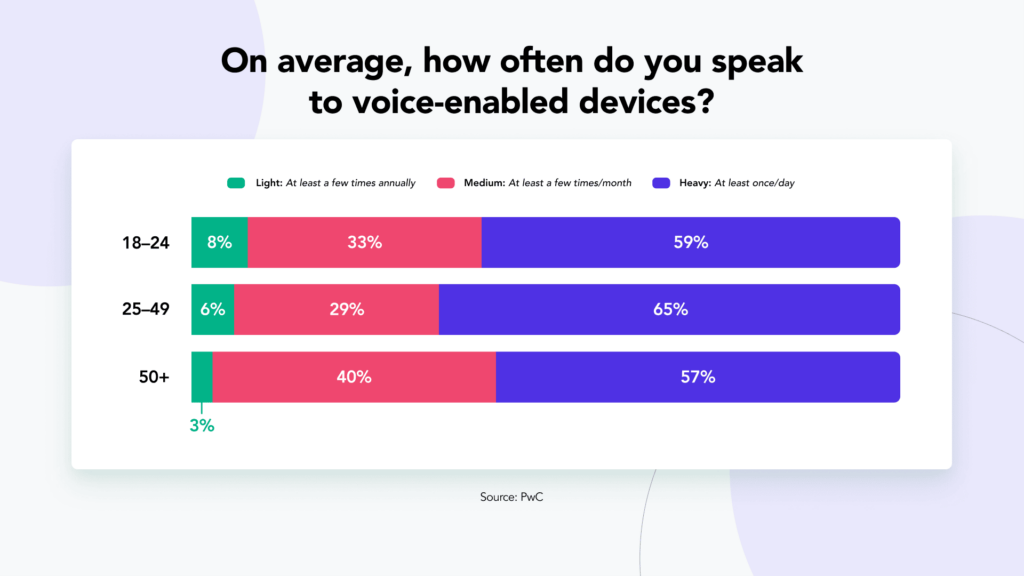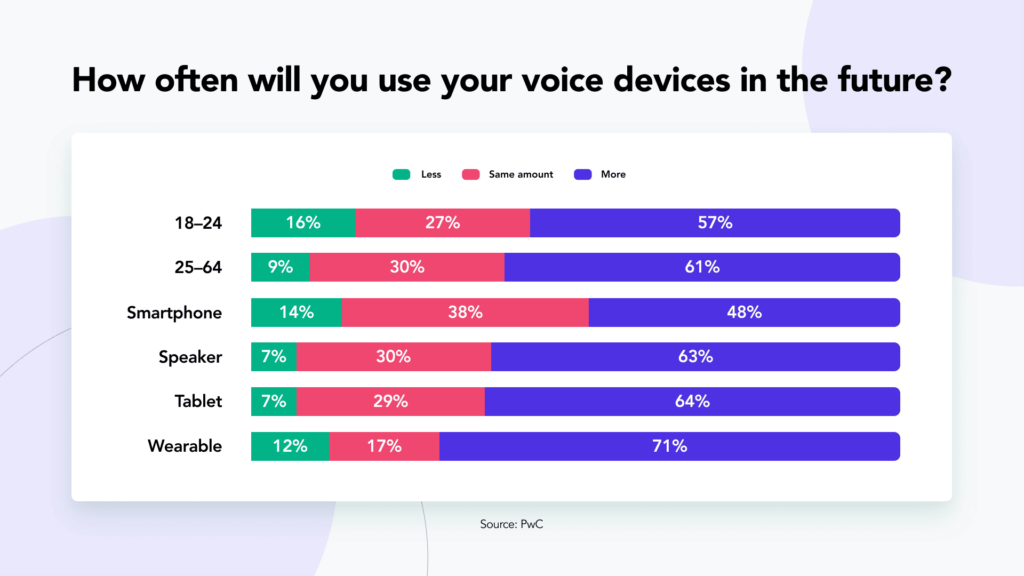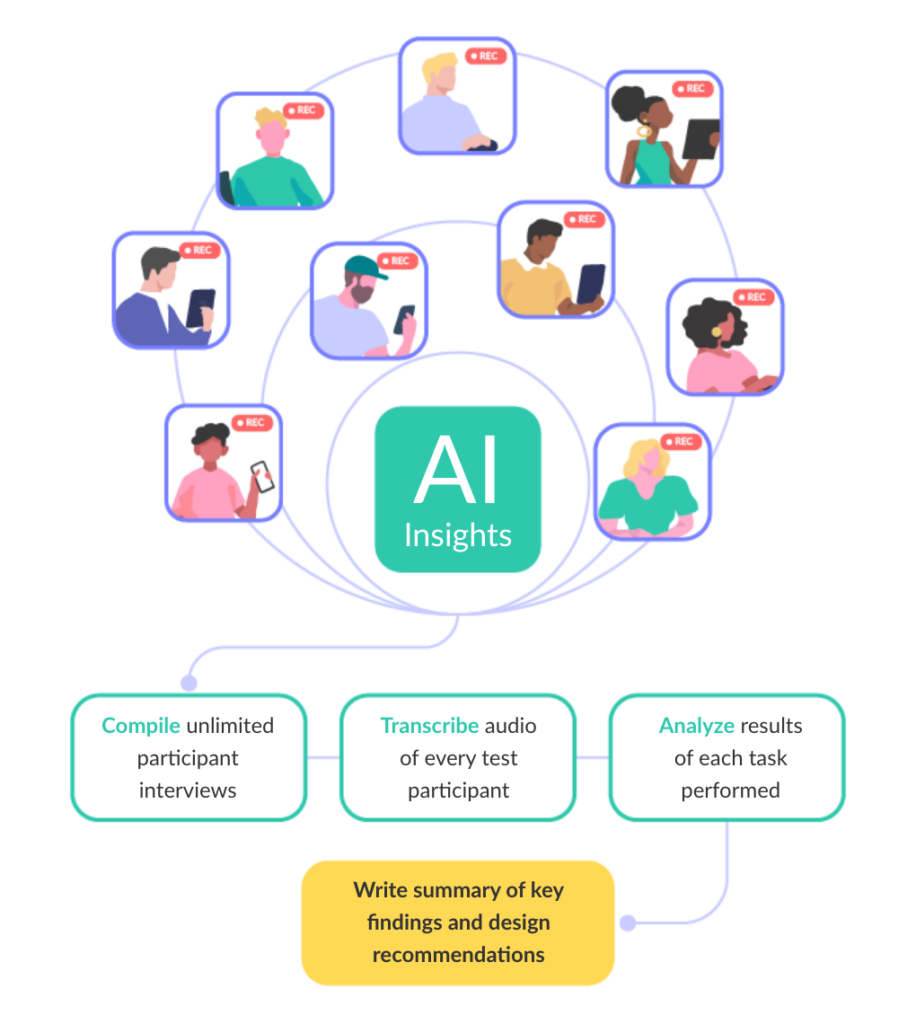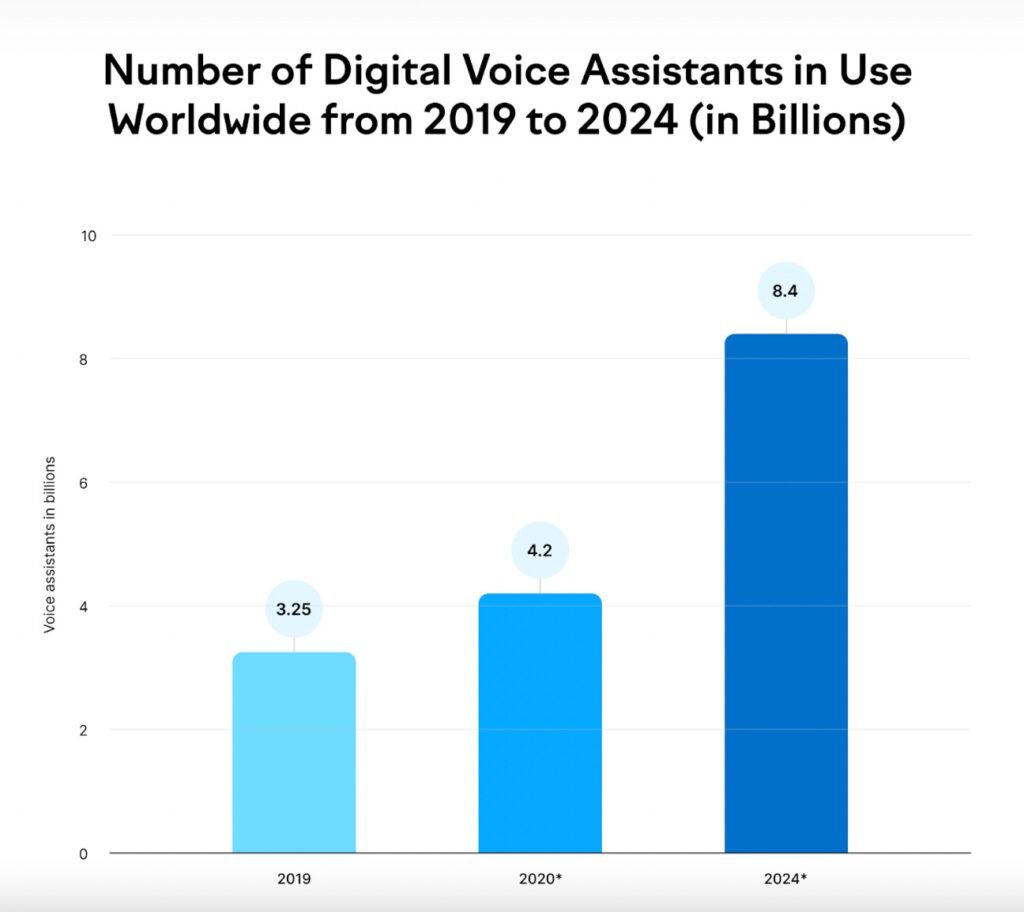The digital marketing landscape is ever-changing, with technological advancements constantly reshaping how businesses connect with their audiences. One of the most transformative trends in recent years has been the rise of voice search. As smart speakers, voice assistants, and voice-enabled devices become integral to our lives, optimizing for voice search is no longer optional—it’s essential. We explore the future of voice search optimization, the challenges businesses may face, and strategies to prepare for this next big shift.
Understanding Voice Search: The Current Landscape
The Rise of Voice Assistants
Voice assistants like Amazon’s Alexa, Google Assistant, and Apple’s Siri have revolutionized the way people access information. According to recent studies, over 50% of smartphone users engage with voice search, and the adoption rate of smart speakers continues to grow globally.
How Voice Search Differs from Text Search
Voice search differs fundamentally from traditional text-based search. Queries are more conversational, longer, and often framed as questions. For example, a user might type “best pizza near me,” but in voice search, they might say, “Where can I find the best pizza near me?” This shift has profound implications for how businesses create and structure content. Moreover, voice search is often used on-the-go, emphasizing the importance of providing quick and mobile-friendly answers.
The Role of Artificial Intelligence in Voice Search
AI and natural language processing (NLP) enable voice assistants to interpret user intent and deliver accurate, context-aware responses. As AI becomes more advanced, it will further refine how voice search queries are understood and answered. This continual improvement opens opportunities for businesses to optimize their strategies and align with user behavior.

Emerging Trends in Voice Search Optimization
Conversational AI and Contextual Understanding
Future advancements in conversational AI will make voice assistants smarter and more intuitive. They will analyze user history, preferences, and context to provide hyper-personalized answers, increasing the importance of delivering relevant, user-focused content.
Voice Commerce
The integration of voice search with e-commerce is on the rise. Consumers are now using voice commands to shop, reorder products, and track deliveries. Voice commerce is projected to account for billions in retail sales, making it crucial for businesses to optimize product descriptions and transactional capabilities for voice.
Multimodal Voice Experiences
Voice search is no longer confined to audio. Devices with screens, like smart displays, combine voice interaction with visual elements, offering a richer user experience. Businesses will need to think beyond voice to ensure their content appears seamlessly across voice-visual interfaces.
Local SEO and Voice Search
A significant portion of voice searches is location-specific, such as “What’s the nearest coffee shop?” This trend underscores the importance of local SEO strategies, including Google My Business optimization and schema markup for local businesses.
Preparing for the Voice Search Revolution
Optimizing for Long-Tail Keywords
Voice search queries are longer and more specific than text-based queries. Businesses must integrate long-tail keywords into their SEO strategies to capture voice search traffic effectively. Tools like Google’s People Also Ask can help identify conversational phrases and questions.
Structuring Content for Voice
The way content is organized impacts its visibility in voice search results. Aim to answer common questions directly in your content using formats like FAQs, bulleted lists, and concise summaries. These structures increase the likelihood of appearing in featured snippets, which are often used for voice search answers.
Emphasizing Mobile-Friendliness
Since a majority of voice searches occur on mobile devices, ensuring a responsive, fast-loading, and user-friendly mobile site is essential. Google’s mobile-first indexing reinforces the importance of prioritizing mobile optimization in voice search strategies.
Leveraging Schema Markup
Schema markup helps search engines understand your content better, making it more likely to appear in relevant voice search results. For example, adding schema to highlight business hours, product prices, and FAQs can enhance visibility for specific voice queries.

Challenges in Voice Search Optimization
Limited Search Results
Unlike text-based searches that present a list of results, voice search typically provides only one or two answers. This “winner-takes-all” model raises the stakes for businesses, as they must optimize to be the top result, often referred to as “position zero.”
Evolving Algorithms
Search algorithms are constantly changing, making it challenging to keep up with the latest optimization techniques. As voice search technology evolves, so too will the factors influencing rankings.
Balancing Voice and Text Optimization
While voice search is growing, text-based search remains a dominant channel. Businesses need to strike a balance, ensuring their strategies cater to both types of searches without compromising on quality or effectiveness.
Industries Leading the Voice Search Revolution
Healthcare
Patients increasingly use voice search to find healthcare providers, schedule appointments, and access medical advice. Optimizing for healthcare-related queries is becoming a top priority for medical practitioners and facilities.
Hospitality and Travel
Voice search plays a pivotal role in the hospitality and travel industry, where users frequently ask about hotel bookings, flight schedules, and tourist attractions. Businesses in this sector must ensure their services are discoverable through voice-enabled platforms.
Retail and E-Commerce
Retailers are leveraging voice search to enhance the shopping experience. From finding product information to completing purchases, voice optimization is driving the future of online retail.

Measuring the Impact of Voice Search Optimization
Tracking Voice Search Performance
Google Analytics and other SEO tools are evolving to include metrics specifically designed for voice search. Tracking voice search performance involves monitoring featured snippet rankings, question-based queries, and local search traffic.
Customer Feedback and Surveys
Direct feedback from customers can provide insights into how they use voice search to interact with your business. Use surveys to identify pain points and improve the voice search experience.
Future Innovations in Voice Search Technology
AI-Driven Insights
AI advancements will enable voice assistants to understand nuanced user behavior, offering even more tailored responses. This will push businesses to create highly targeted content that meets specific customer needs.

Integration with IoT Devices
As Internet of Things (IoT) devices become more prevalent, voice search will extend into smart homes, cars, and wearables. Businesses must prepare for a world where voice interactions happen seamlessly across multiple devices.
Multilingual Voice Search
The global adoption of voice assistants highlights the need for multilingual voice search capabilities. Businesses targeting international audiences must ensure their content is optimized for various languages and dialects.
How Businesses Can Stay Ahead
Continuous Learning and Adaptation
The voice search landscape is evolving rapidly, requiring businesses to stay informed about the latest trends, tools, and technologies. Regular training and workshops on voice SEO can keep teams up-to-date.
Collaborating with Voice Technology Experts
Partnering with voice search experts or agencies can provide businesses with a competitive edge. These professionals have the expertise to refine strategies and ensure maximum visibility in voice search results.
Expanding Opportunities in Voice Search Advertising
Voice search is opening new frontiers for advertising, providing innovative ways to reach consumers. Businesses can utilize voice search ads to promote products and services directly through voice assistants. These ads often appear as sponsored results when users ask queries like “What are the best laptops under $1,000?”
Creating Relevant Ad Content
The key to successful voice search ads is relevance. Ad copy should mimic natural speech patterns, addressing user intent directly and providing immediate value. Unlike traditional ads, voice ads need to sound conversational and align seamlessly with the user’s inquiry.
Monetizing Voice Search Traffic
As platforms like Google and Amazon enhance their voice search capabilities, opportunities for paid promotion through voice search are growing. Businesses can leverage these tools to ensure their products and services are among the first suggested by voice assistants.

Enhancing User Experience Through Voice Search
Voice search isn’t just a tool for delivering information; it’s a gateway to improving the overall user experience. Consumers appreciate how voice search simplifies interactions, making their online experiences more convenient and intuitive.
Streamlining Navigation
For websites and apps, integrating voice search features allows users to bypass traditional navigation, directly finding the content or product they need. This feature is particularly valuable for industries like e-commerce, where a user can say, “Show me black sneakers in size 10,” and be directed instantly to relevant results.
Catering to Accessibility Needs
Voice search also plays a crucial role in accessibility. Users with visual impairments or those who struggle with traditional typing benefit greatly from voice-activated commands. Optimizing for voice search ensures your business is inclusive and accessible to all.

Voice Search and Personalization
As personalization becomes a cornerstone of customer engagement, voice search is leading the charge in delivering hyper-personalized experiences.
Leveraging User Data
Voice assistants analyze user data, such as past searches, purchase history, and preferences, to provide tailored responses. For instance, when a returning customer asks, “Order my usual coffee,” the assistant can recall their preferred beverage from previous interactions.
Dynamic Content Creation
Businesses can take personalization a step further by creating content that adjusts dynamically to user preferences. Tailored voice responses or recommendations based on user behavior can significantly enhance satisfaction and loyalty.
The Role of Analytics in Voice Search Optimization
Voice search analytics provides critical insights into user behavior, helping businesses refine their strategies for better results.
Identifying Common Queries
Analyzing voice search data can reveal frequently asked questions, allowing businesses to create content that directly addresses these popular queries. Tools like Google Search Console and third-party SEO platforms can help uncover trends in voice-based search traffic.
Tracking Engagement Metrics
Measuring metrics such as bounce rates, session duration, and conversion rates for voice search users can highlight areas for improvement. Businesses should regularly evaluate these metrics to ensure their voice search optimization strategies deliver tangible results.

Overcoming Challenges in Voice Search Optimization
While the potential of voice search is immense, businesses face several challenges in implementing effective optimization strategies.
Managing Diverse Platforms
With multiple voice assistants and platforms in use, businesses must optimize for various ecosystems. Ensuring compatibility with devices like Amazon Echo, Google Nest, and Apple HomePod requires tailored approaches.
Keeping Up with Algorithm Updates
Voice search algorithms evolve frequently, making it essential for businesses to stay updated on changes. Regularly auditing and adjusting SEO strategies can help maintain visibility in a competitive landscape.
Voice Search Beyond B2C: Opportunities in B2B Marketing
Voice search optimization isn’t limited to consumer markets. B2B businesses can also leverage this technology to reach decision-makers more effectively.
Providing Quick Solutions
B2B users often seek quick answers to complex queries, such as “What are the benefits of cloud-based accounting software?” Optimizing for these types of queries positions your business as a trusted resource.
Building Authority Through Thought Leadership
B2B brands can create high-quality, voice-optimized content such as whitepapers, case studies, and industry insights. These materials can appear in voice search results, reinforcing the brand’s authority in its field.
Future-Proofing Your Business for Voice Search
As the technology continues to evolve, businesses must adopt forward-thinking strategies to stay competitive.
Investing in AI-Powered Tools
AI-driven tools for voice search optimization, such as keyword research and content generation, can streamline processes and improve results. Investing in these tools ensures your business remains at the forefront of innovation. Additionally, leveraging AI’s predictive analytics can help identify emerging trends, giving businesses a competitive edge in voice search. By automating repetitive tasks, companies can focus more on crafting tailored strategies for voice search users.
Experimenting with Emerging Technologies
The integration of voice search with augmented reality (AR) and virtual reality (VR) is on the horizon. Businesses should explore how these technologies can complement their voice search strategies, offering immersive and interactive experiences for users. For example, a voice command could guide customers through virtual store tours or AR-powered product demonstrations. Staying open to these cutting-edge innovations ensures your business remains adaptable and ready for future shifts in consumer behavior.

Embracing the Voice-Driven Future
The future of voice search optimization is dynamic, innovative, and full of opportunities. As technology advances and consumer behavior shifts, businesses must embrace this transformation by refining their strategies to meet the demands of voice-first interactions. From optimizing for conversational queries to leveraging AI-driven insights, the potential for growth through voice search is immense. By preparing today, businesses can position themselves at the forefront of this next big shift in digital marketing, ensuring they not only adapt but thrive in the era of voice search.



Recent Comments